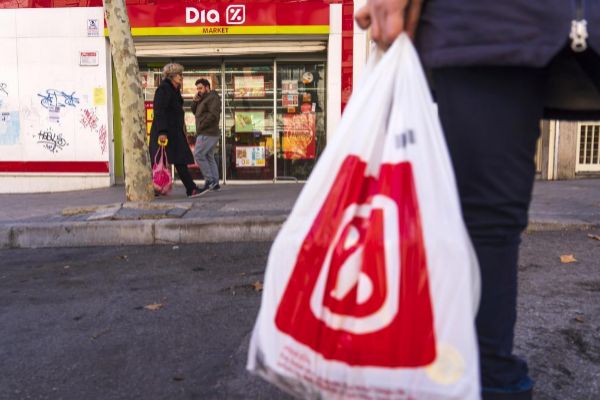The shareholders of the Dia supermarket chain today approved in an extraordinary meeting a capital increase of 605 million euros. The company expected this injection as water from May, after having gone through the worst crisis in its history this year and having dodged the creditors' contest in extremis . The company's shares were down 4%.
The capital increase is backed by Russian tycoon Mikhail Fridman, owner (through his specialized investment fund Letterone) of almost 70% of the company's shares. Until a few months ago, it had 29% of the capital, but when the crisis went further and Dia's survival began to be in danger, it launched a takeover bid to take control of the company and assured that, if its offer succeeded, it would execute a capital increase to give financial stability.
This extension was planned and only the shareholders needed to approve it. The board has supported the proposals made by the board of directors. This capital increase is part of the "refinancing and recapitalization process of the company," they said in a statement to the National Securities Market Commission (CNMV).
LetterOne will disburse at least 500 million euros to get the company afloat , which needs liquidity immediately. Although it was coming from behind, the crisis became more visible when the 2018 profit forecasts (the so-called profit warning ) were revised down. When the accounts were made public it was worse: Dia announced losses of 352 million, announced layoffs and, being in negative equity, went into technical bankruptcy.
The management team was replaced and the company began to fall on the stock market to the point that it was expelled from the Ibex 35, where it traded until the end of December 2018. In the absence of liquidity (it was feared that it could not pay suppliers and even there was a shortage in some stores) the constant movements in the dome were added. In less than a year he changed three times as CEO.
Mikhail Fridman, who then owned 29% of the capital through Letterone, presented a plan to get the company out of the crisis. The board of directors, then headed by Borja de la Cierva, presented a very similar project. Both parties, engaged in a struggle for power, proposed a capital increase of similar amount and asked the bank for an extension in the credits, which were about to expire.
After weeks of power struggle between investor and dome, the shareholders voted Fridman's plan, he launched his bid and obtained the support of the majority. Soon after, an agreement with the creditor bank was reached, not without efforts. This capital increase approved today was one of the last steps the chain was lacking in this afloat process.
In spite of this, the shares fell about 4%. The last results presented were not good: between January and June, net sales reached 3,400 million euros, representing a decrease of 7%, while the gross operating result, which measures the profitability of a company, stood at 33.2 million euros, 83.9% less.
According to the criteria of The Trust Project
Know moreThe Mexican tycoon Carlos Slim is reinforced in Prisa and already controls 4.3% of the group
The Dioni will tell his story in a documentary series
GadgetsGoPro Hero 8: Cheaper, compatible with external microphones and with more quality

